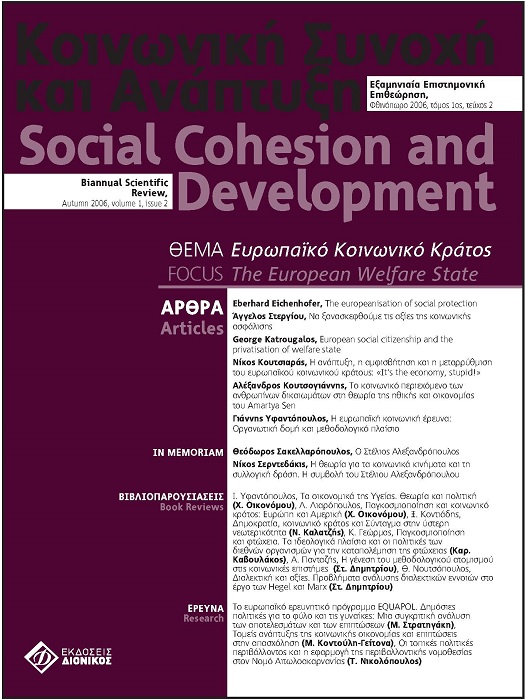Growth, uncertainty and reform of the European welfare state: «It’s the economy, stupid!»

Abstract
The post-war growth of the European welfare state was made possible by the exceptionally high rates of economic growth and the spectacular performance of European labour markets during that (golden) era. Yet, it also contributed to economic success. However, since the early ’70s, weak growth and high unemployment have made evident the impact of social and labour market policy failures, resulting in heavy economic distortions, whilst also putting in doubt the adequacy and (long-term) sustainability of the European welfare state. Reform of the social and labour market policies and institutions should, therefore, primarily
aim at removing heavy economic distortions, thereby improving efficiency.
Article Details
- How to Cite
-
Κουτσιαράς Ν. (2016). Growth, uncertainty and reform of the European welfare state: «It’s the economy, stupid!». Social Cohesion and Development, 1(2), 43–55. https://doi.org/10.12681/scad.9015
- Section
- Articles

This work is licensed under a Creative Commons Attribution-NonCommercial-ShareAlike 4.0 International License.
Authors who publish with this journal agree to the following terms:
- Authors retain copyright and grant the journal right of first publication with the work simultaneously licensed under a Creative Commons Attribution Non-Commercial License that allows others to share the work with an acknowledgement of the work's authorship and initial publication in this journal.
- Authors are able to enter into separate, additional contractual arrangements for the non-exclusive distribution of the journal's published version of the work (e.g. post it to an institutional repository or publish it in a book), with an acknowledgement of its initial publication in this journal.
- Authors are permitted and encouraged to post their work online (preferably in institutional repositories or on their website) prior to and during the submission process, as it can lead to productive exchanges, as well as earlier and greater citation of published work (See The Effect of Open Access).


